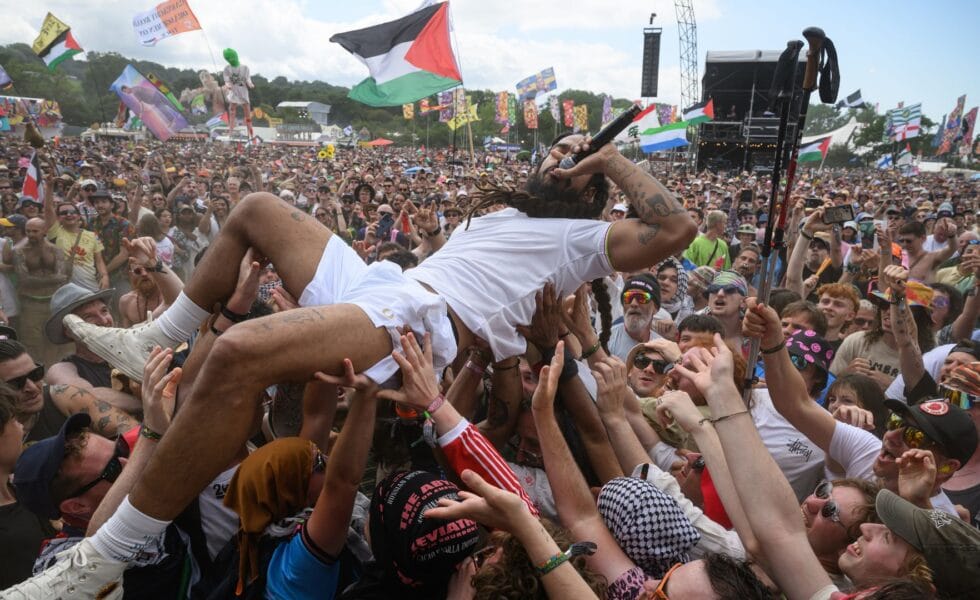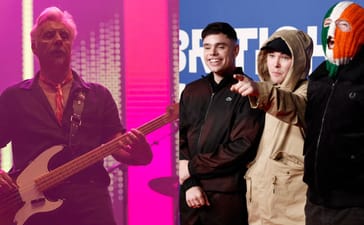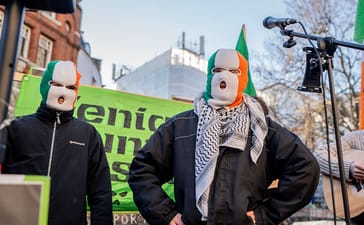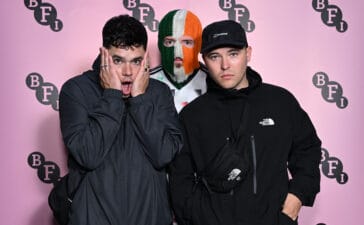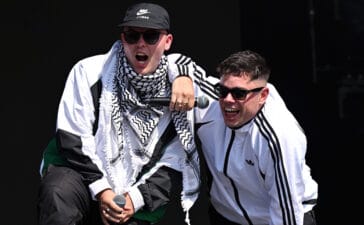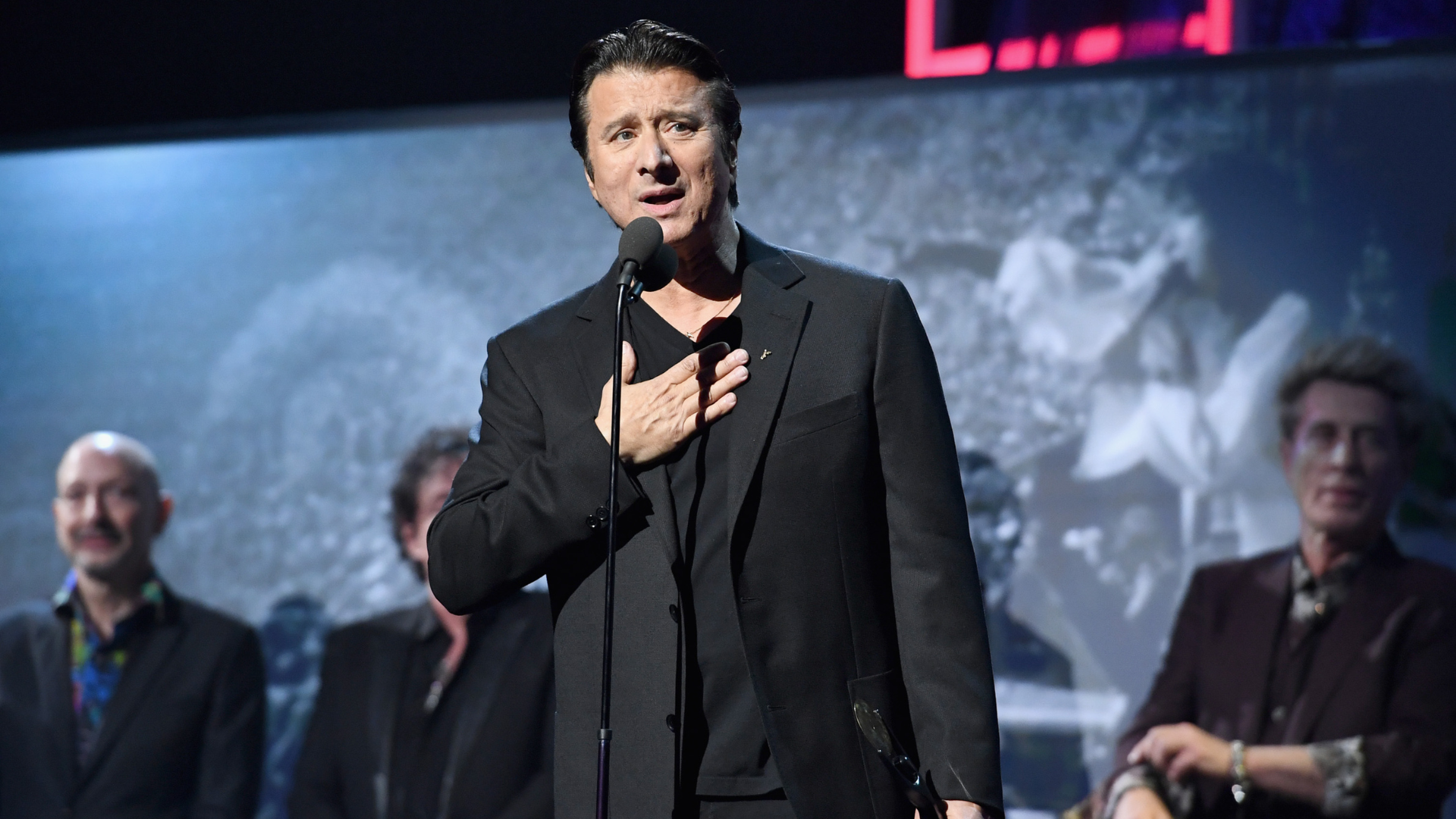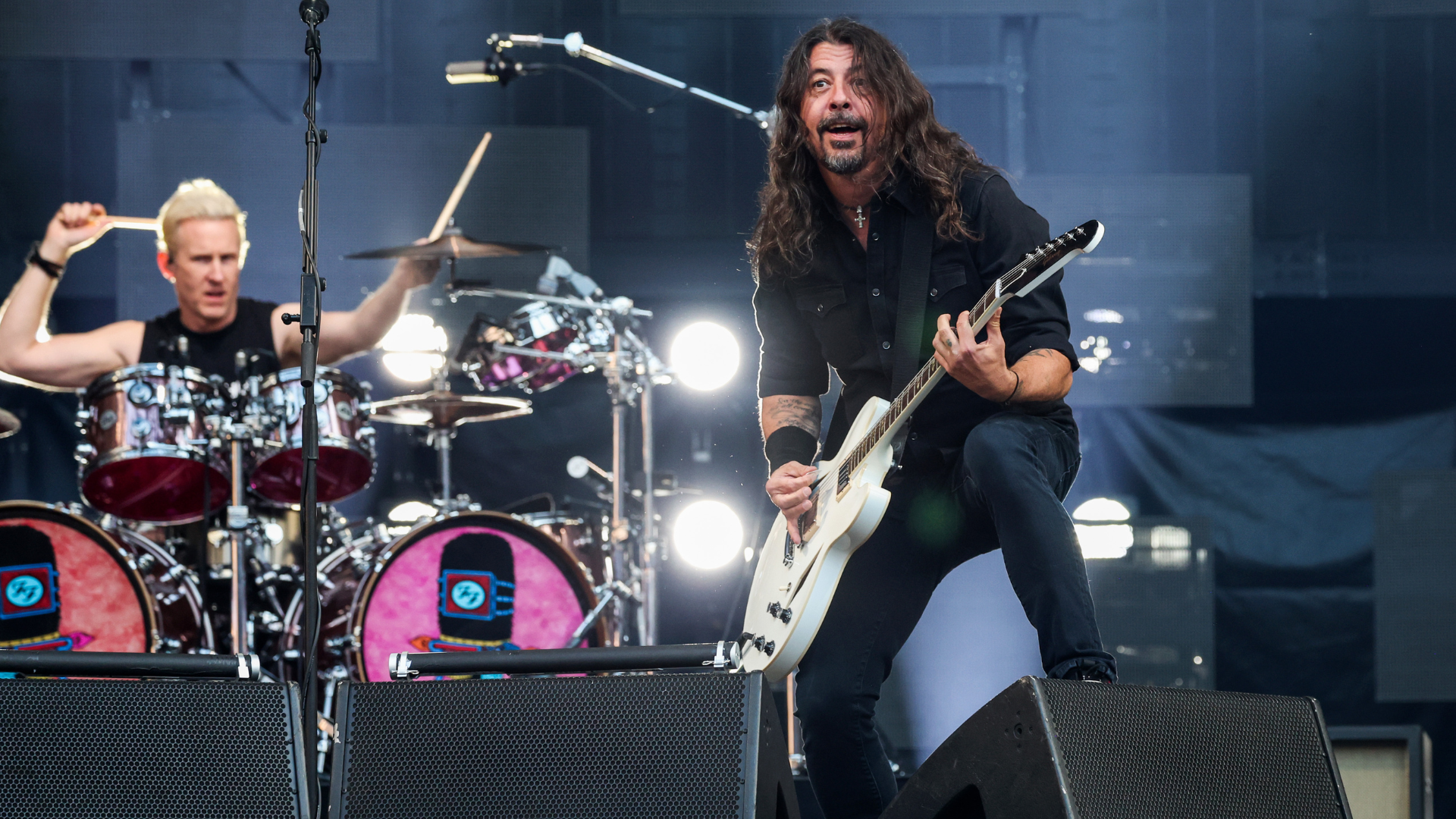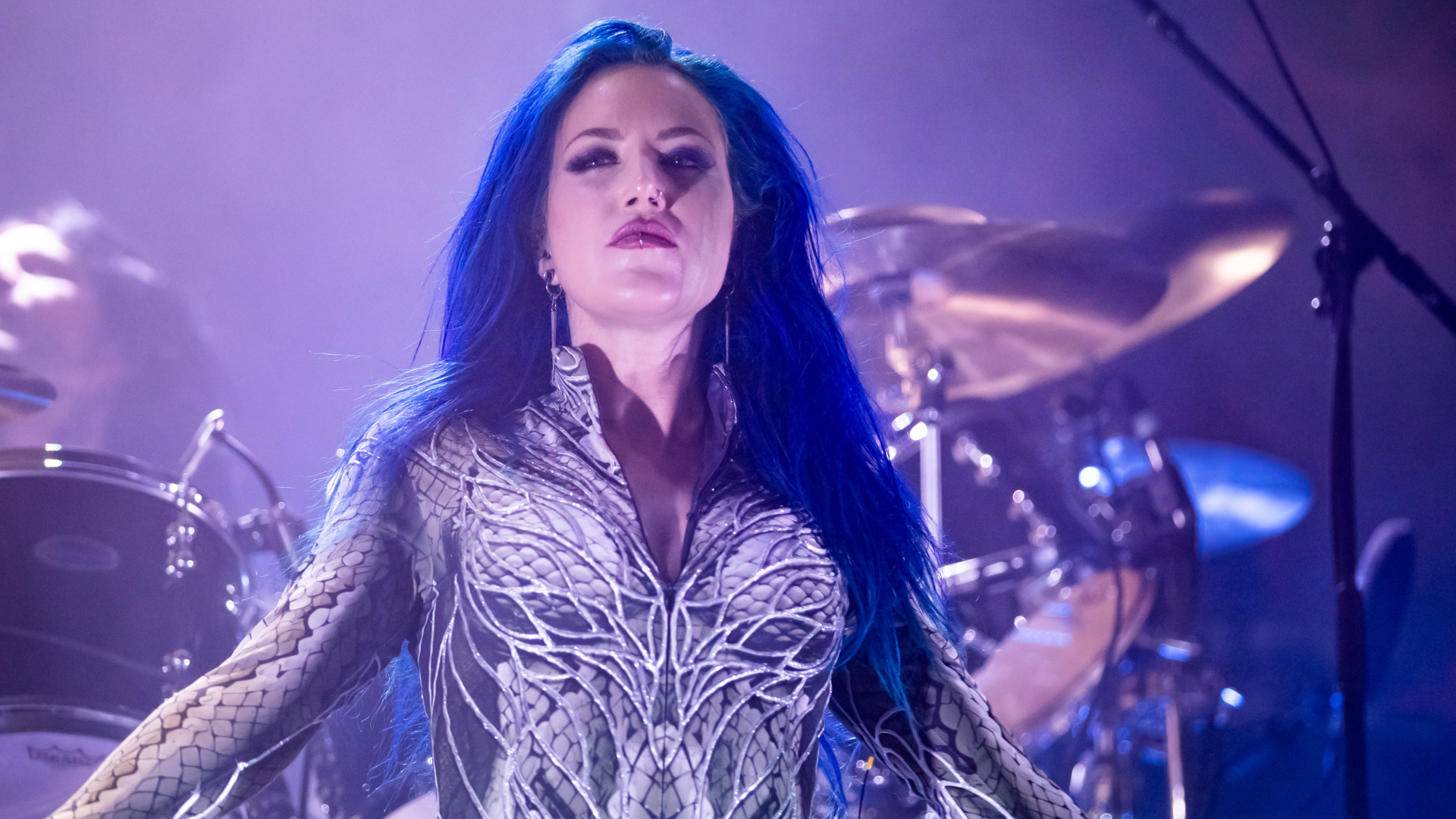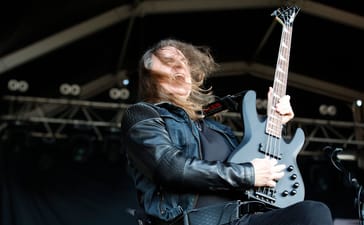BBC has announced it won’t broadcast “high-risk” acts after Bob Vylan’s controversial Glastonbury set last weekend.
The BBC has announced it will no longer broadcast live performances it considers “high risk” following the controversy surrounding Bob Vylan’s appearance at Glastonbury on June 28.
During their set, the duo voiced support for Palestine, called out Israel, the US and UK governments, and projected messages like “Free Palestine – United Nations have called it a genocide – the BBC calls it a ‘conflict’”. They also led chants of “death, death to the IDF [Israel Defence Forces]”.
In a note to BBC staff, Director-General Tim Davie apologised for the broadcast: “I deeply regret that such offensive and deplorable behaviour appeared on the BBC and want to say sorry – to our audience and to all of you, but in particular to Jewish colleagues and the Jewish community.”
The BBC admitted mistakes were made in deciding to livestream Bob Vylan’s set, despite them being flagged as one of seven “high-risk” acts. The broadcaster stated that “errors made both in the lead-up to and during Bob Vylan’s appearance” included assuming risks could be mitigated in real time, and failing to cut the broadcast when the performance escalated. BBC had already opted to not broadcast Kneecap’s performance at Glastonbury.
The BBC has now pledged that performances deemed high risk will not be broadcast or livestreamed. It will also deploy editorial policy support at major music events and create clearer guidelines on when to withdraw a live stream.
BBC Chair Samir Shah also issued an apology, calling the decision to air the set “unquestionably an error of judgement” and adding: “The BBC Board met on Tuesday to hear what actions will now be taken. The Executive have agreed to put in place a set of strengthened editorial practices and policies for live music programming.” Shah confirmed there will be accountability for those responsible for the broadcast failures.
The fallout has been swift. Glastonbury organisers said they were “appalled” by Bob Vylan’s chants, while UK politicians including Cabinet minister Wes Streeting and Culture Secretary Lisa Nandy criticised the BBC’s handling of the broadcast. US Deputy Secretary of State Christopher Landau described the performance as a “hateful tirade” and confirmed that Bob Vylan’s US visas have been revoked.
The duo have also reportedly been dropped by their management and booking agency, were investigated by police, and have been removed from festival lineups in the wake of their performance.
Despite the backlash, Bob Vylan have defended their set, stating their intent was to call for the “dismantling of a violent military machine” rather than advocating harm to any group. They said it was important to “teach our children to speak up for the change they want”.
Massive Attack, Lambrini Girls, Amyl And The Sniffers, and Soft Play have voiced support for Bob Vylan, criticising media coverage that focuses on the band instead of the humanitarian crisis in Gaza.
Massive Attack urged attention on “what is happening daily to the people of Gaza”, while Soft Play said: “They are starving children, where is the media’s outrage at Israel’s continued obliteration of a whole nation?”
The conversation around musicians and their right to raise their voices for political causes they believe in (and against situations they believe to be unjust) has been ongoing for decades, but has reached somewhat of a fever pitch recently, with Bob Vylan’s performance kickstarting even more intense debate.
BBC’s decision to put a stop to broadcasting performances they deem ‘high risk’ seems like dicey territory. Who decides what is too risky to broadcast, and what are the deciding factors? Will performers lending their voices to support causes seen as palatable by the BBC’s team be spared what could be seen as a form of censorship?


